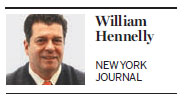Looking past this year's volatility in China's stock market, a Boston financial company has launched an exchange-traded fund (ETF) that invests in companies on the Chinese mainland.
State Street Global Advisors (SSGA), the investment management arm of State Street Corp, which trades on the New York Stock Exchange (symbol STT), on Oct 29 rolled out the SPDR MSCI China A Shares IMI ETF (symbol XINA).
XINA offers investors access to A shares of companies incorporated in the mainland, which is approximately 51 percent of the Chinese equity market and was available only to China-domiciled investors until recently, says State Street.
Unlike some China A share-ETF offerings that are managed through third-parties, XINA will be run directly by State Street Global Advisors Asia Ltd, based in Hong Kong, SSGA said in a release.
"Given that China is both the second-largest economy and the second-largest equity market in the world, we feel it's important to have exposure in your portfolio," said Michael Arone, chief investment strategist for SSGA's US intermediary business. "Broader exposure, with the benefits of diversification, may be valuable in the long term as these market developments create potentially long-term investment opportunities for A shares even as short-term volatility may remain high."
"As the Chinese market becomes more accessible to investors outside of China, clients have asked for an A shares ETF designed to track a broad-based and well known index," said Nicholas Good, chief operating officer of the US intermediary business at SSGA.
"While volatility in the A shares market has been elevated recently, the Chinese government has announced near-term policy actions to restore investor confidence, and we believe that the domestic Chinese equity market will continue to emerge as a long-term staple of investor portfolios," Good said.
The ETF looks to track the performance of the MSCI China A International IMI Index, which is a large-, mid- and small-cap representation of Chinese companies with A share listings on the Shanghai or Shenzhen stock exchanges.As of Sept 30, the index was composed of 1,795 constituents. Other exposures to the A share market, such as the CSI 300 index and the FTSE A 50 index, can potentially limit investors to only large- and mid-cap stocks, State Street said.
The CSI 300 Index is a weighted index of 300 A-share stocks listed on the Shanghai or Shenzhen. The FTSE China A50 Index includes the largest 50 A-share Chinese companies by total market capitalization.
On Wednesday, shares of the new ETF were trading at $25.77, up $1.51, or 6.2 percent.

China's two mainland stock exchanges, the Shanghai and the Shenzhen, have taken a wild ride this year. The tech-heavy Shenzhen was up as much as 122 percent this year before a massive selloff began in June. Still, as of Wednesday, the index was up 47.6 percent in 2015.
The Shanghai Composite was on a 60 percent tear until June 12, but now is up a little less than 7 percent on the year.
Investors in China should be helped by the country's commitment to maintaining its GDP growth. China won't yield on its goal of growing its economy at a medium-high level to achieve "moderate prosperity" by 2020, said President Xi Jinping.
The country will have to keep its economy growing at no lower than 6.5 percent each year for the next five years, Xi was reported on Tuesday to have told a top-level decision-making meeting last week.
An annualized GDP growth rate of 6.5 percent will "be the minimum" required, the president said. Only a medium-to-high level of growth will match the goals in the new five-year plan, in which China is looking to double both its aggregate GDP and per capita income.
Contact the writer at [email protected]